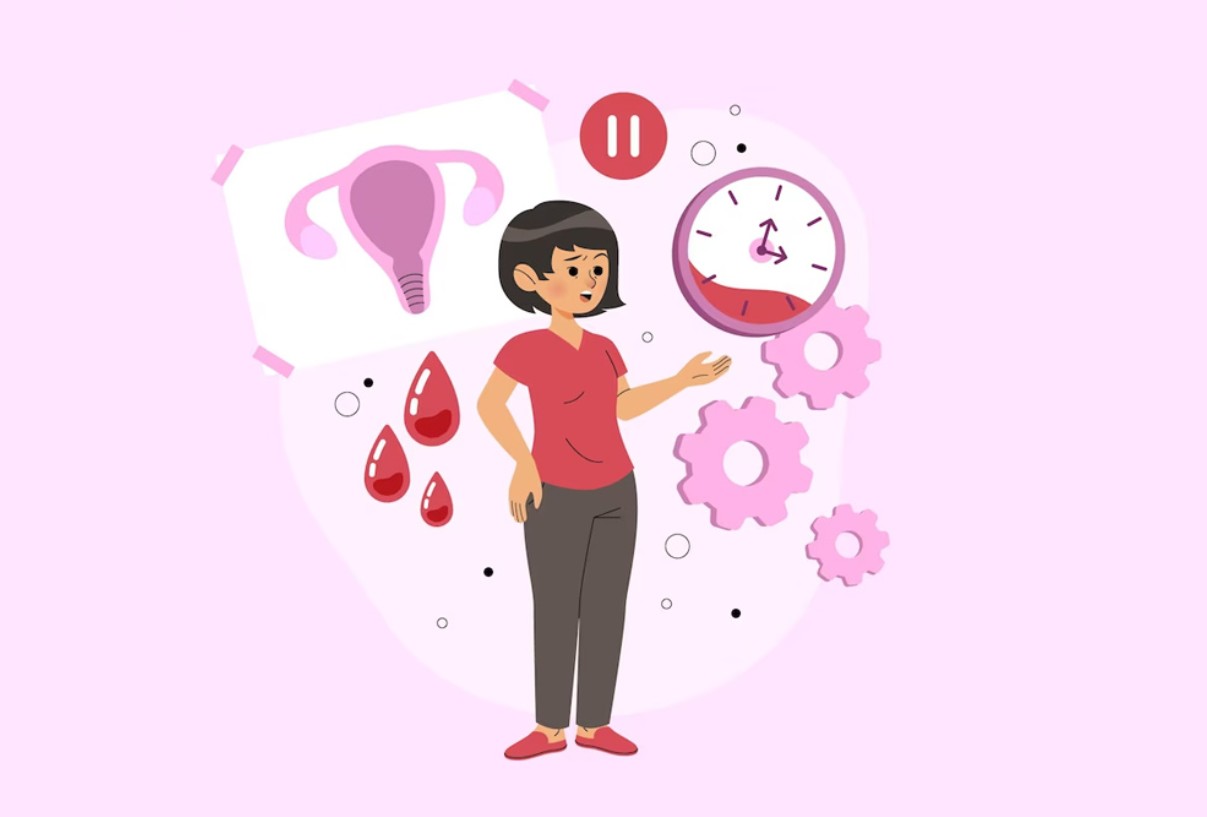Menstruation is a natural biological process that every woman experiences, yet it is often surrounded by taboos, myths, and lack of awareness. Poor menstrual hygiene can lead to infections, reproductive health problems, and even long-term complications.
By spreading the right information, women can take better care of themselves during periods. As the best gynecologist in Faridabad, Dr. Shweta Mendiratta emphasizes the importance of menstrual hygiene, breaking myths, and following healthy practices for overall well-being.
Common Myths About Menstruation
- Myth: Women should not exercise during periods.
Fact: Light to moderate exercise such as yoga or walking can actually help reduce cramps, bloating, and mood swings.
- Myth: Period blood is dirty or impure.
Fact: Menstrual blood is the same as normal blood—it contains tissue, mucus, and blood from the uterine lining. There is nothing impure about it.
- Myth: Bathing during periods is harmful.
Fact: Bathing daily is essential for hygiene. Warm baths may even relieve menstrual cramps and relax muscles.
- Myth: You cannot get pregnant during periods.
Fact: Although chances are lower, pregnancy can occur if ovulation happens early. Hence, contraception is important if you’re sexually active.
- Myth: Using tampons or menstrual cups is unsafe.
Fact: When used correctly, tampons and menstrual cups are safe and hygienic alternatives to sanitary pads.
Importance of Menstrual Hygiene
Maintaining proper menstrual hygiene is not just about comfort—it prevents infections and ensures long-term reproductive health. Poor practices can lead to:
- Urinary Tract Infections (UTIs)
- Reproductive Tract Infections (RTIs)
- Skin rashes or irritation
- Infertility risks (in severe untreated cases)
According to health experts, including Dr. Shweta Mendiratta, leading gynecologist in Faridabad, menstrual hygiene should be taught to girls from adolescence to build lifelong healthy habits.
Best Practices for Menstrual Hygiene
- Choose the Right Menstrual Product
- Sanitary Pads: Commonly used, available in different sizes and absorbencies.
- Tampons: Provide freedom of movement, especially for sports.
- Menstrual Cups: Eco-friendly, reusable, and safe.
- Period Panties: Comfortable and leak-proof for light to medium flow days.
Always pick products based on flow, comfort, and personal preference.
- Change Frequently
- Sanitary pads/tampons should be changed every 4–6 hours.
- Menstrual cups should be emptied every 8–12 hours.
- Changing frequently prevents bacterial growth and infections.
- Maintain Personal Hygiene
- Wash the genital area with mild soap and water (not harsh chemicals).
- Always wipe from front to back to avoid bacterial transfer.
- Wear clean, breathable cotton underwear.
- Dispose of Menstrual Waste Properly
- Wrap pads/tampons in paper before discarding.
- Do not flush menstrual products down the toilet.
- If using menstrual cups, sterilize them after each cycle.
- Eat a Balanced Diet During Periods
- Include iron-rich foods (spinach, beetroot, jaggery) to combat blood loss.
- Hydrate well to reduce bloating.
- Limit caffeine and processed foods to avoid mood swings.
- Track Your Menstrual Cycle
- Helps identify irregularities, missed periods, or unusual symptoms.
- Apps and calendars make tracking easy.
- Consult a gynecologist if cycles are extremely irregular, too heavy, or too painful.
When to See a Gynecologist?
Seek medical advice from an expert like Dr. Shweta Mendiratta, best gynecologist in Faridabad, if you experience:
- Very heavy bleeding (soaking a pad every 1–2 hours)
- Severe cramps unrelieved by home remedies
- Periods lasting longer than 7 days
- Missing periods without pregnancy
- Foul-smelling discharge or rashes during periods
Tips for Adolescent Girls (Teens)
Menstrual hygiene education should start early. Here’s what young girls should know:
- Understand your body: Menstruation is natural, not shameful.
- Learn to use pads/tampons correctly: Practice in a safe and supportive environment.
- Talk openly: Share concerns with parents, friends, or doctors.
- Carry an emergency period kit: Pads, tissues, and sanitizers in school bags.
Role of Family & Society in Menstrual Health
- Break the taboo of silence around menstruation.
- Schools should introduce menstrual hygiene programs.
- Families must support girls emotionally and practically.
- Communities should promote safe and affordable menstrual products.
FAQs on Menstrual Hygiene
Q1. Can I swim during periods?
Yes, with tampons or menstrual cups, swimming is perfectly safe.
Q2. Are irregular periods normal in teenagers?
Yes, cycles may take 2–3 years to become regular. But consult a gynecologist if irregularity persists.
Q3. How often should menstrual cups be replaced?
With proper care, a cup can last up to 8–10 years.
Q4. Can poor menstrual hygiene cause infertility?
In severe untreated infections, yes. That’s why hygiene is crucial.
Conclusion
Menstrual hygiene is about dignity, comfort, and health. By busting myths, following hygiene practices, and seeking timely medical help, women can prevent complications and lead healthier lives.
For personalized guidance on menstrual health, Dr. Shweta Mendiratta, the best gynecologist in Faridabad, offers expert advice and compassionate care for women of all ages.


